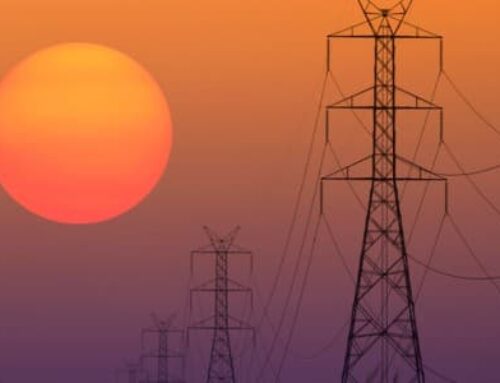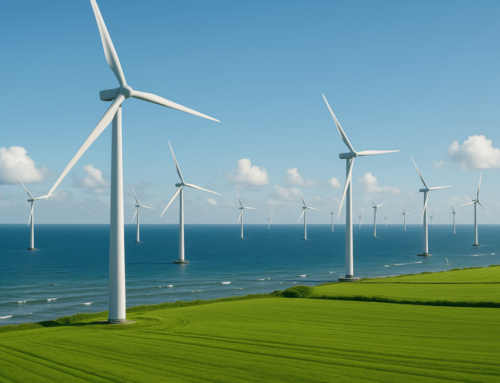Despite Federal Challenges, Two Leading Solar Advocates Are Continuing Their Forward Push
May 8, 2025
Two organizations that operate close to the grassroots of solar power are struggling with the chaos of the Trump administration while also feeling invigorated by the challenge of working in difficult times.
I spoke this week with Anya Schoolman, founder and executive director of Solar United Neighbors, a nonprofit that organizes buying groups for rooftop solar and also does state and local advocacy, and Sachu Constantine, executive director of Vote Solar, a nonprofit that works to expand access to solar through work in state legislatures and regulatory commissions.
Despite current obstacles at the federal level, they remain confident in the long-term premise of their work, which is that solar power is ascending and will lead to an electricity system that is cleaner, less centralized and more equitable.
Get Inside Clean Energy
Today’s Climate
Twice-a-week
A digest of the most pressing climate-related news, released every Tuesday and Friday.
Get Today’s Climate
Breaking News
Daily
Don’t miss a beat. Get a daily email of our original, groundbreaking stories written by our national network of award-winning reporters.
Get Breaking News
“We’ve had a really consistent approach that’s working for us, which is keep one’s head down, keep doing the work,” said Schoolman, whose organization is based in Washington, D.C. “Don’t listen to the noise. Only pay attention to the things that actually happen.”
Solar United Neighbors has about 100 employees who do work across the country, with a special focus on 12 states (Arizona, Colorado, Florida, Indiana, Maryland, Minnesota, Nevada, Ohio, Pennsylvania, Texas, Virginia and West Virginia), as well as the District of Columbia and Puerto Rico.

She sees evidence that solar power, especially rooftop solar, is gaining support in state legislatures and in terms of public perception. For example, Virginia’s Republican governor, Glenn Youngkin, signed a bill last week that established a pilot program that would explore using virtual power plants, groups of customer-owned batteries and solar panels that can become resources used by the grid.
The federal government, though, has done serious harm with its attempts to claw back funding for renewable energy loans since President Donald Trump returned to the White House. Even the initiatives that haven’t been targeted, such as the Solar for All program that helps low-income households, are hurt by a sense that funding is at risk, Schoolman said.
“The uncertainty makes planning very hard,” she said. “It just makes it hard to work if you just don’t know what the world is going to look like in six months.”
The hits seem to arrive with regularity. She received a cancellation notice from the government last week about funding for a solar program in Puerto Rico that was getting technical assistance from Solar United Neighbors.
“There are days where it feels like a gut punch,” she said.
What keeps her going?
“Our projects have really broad bipartisan support, like when we bring in our homeowners and farmers to be with their Republican legislators, they’re being warmly greeted,” she said. “And so the idea that you can make like a human, sincere connection across party lines because solar just makes so much sense in so many communities—it helps.”
This story is funded by readers like you.
Our nonprofit newsroom provides award-winning climate coverage free of charge and advertising. We rely on donations from readers like you to keep going. Please donate now to support our work.
On the opposite coast from Schoolman, Vote Solar is dealing with many of the same issues.
“This added uncertainty can be very painful,” said Constantine.

His organization is based in San Francisco and has about 55 employees. He has been at Vote Solar since 2017 and became its executive director in 2022, succeeding the cofounder, Adam Browning.
“We have tried to create space in the organization where people can share angst or news items or even messages of hope,” he said. “We need to acknowledge that this is hard for everybody, but we also still have a job to do.”
It helps that he’s seeing progress at the state level. He points to Illinois, Michigan and Minnesota as three states that have made significant gains by adopting solar-friendly policies in the last few years. He also has hope for states where progress has been slower to materialize, such as Indiana and Ohio.
He, like Schoolman, is buoyed by a sense of mission.
“The one thing that I try to remind myself, as we see all this unfolding around us, is that the opportunity is still there, the chance to make a difference,” he said.
Other stories about the energy transition to take note of this week:
Trump Administration Plans to End Energy Star Home Appliance Program: One of the many casualties of the Trump administration cuts at the Environmental Protection Agency will be the Energy Star program that certifies highly efficient appliances. The proposed end to the decades-old program would be part of shutting down the EPA’s offices of Atmospheric Protection and Air Quality Planning and Standards, as Valerie Volcovici and Ismail Shakil report for Reuters.
States Sue to Stop Trump Freeze on Wind Energy Approvals: Attorneys general from 17 states have gone to the U.S. District Court in Massachusetts to challenge Trump’s ban on wind energy development, as Diana DiGangi reports for Utility Dive. Trump had issued an executive order that stopped onshore and offshore wind projects while the federal government conducted a study of wind energy leasing and permitting practices. The attorneys general said this order violates federal law and is doing harm to the economy.
Trump’s Budget Request Has Deep Cuts for Energy and Environment Programs: The Trump administration issued its fiscal-year 2026 budget request on Friday, asking Congress for a 23 percent cut to non-defense discretionary spending, as I reported for ICN. Programs supporting renewable energy research, EV charging and environmental justice are among those that would receive severe cuts, which is alarming to clean energy business groups and environmental advocates. Congress can decide which parts of the request to keep and which to discard.
Gigantic Virginia Offshore Wind Project Moves Toward Completion: In a rough year for offshore wind, a project that would be the largest in the country continues to make progress toward coming online, as Clare Fieseler reports for Canary Media. Coastal Virginia Offshore Wind, a 2.6-gigawatt project, is now 55 percent complete. And unlike the Empire Wind 1 project in New York, which was halted by a stop-work order from the Trump administration, the Virginia project remains on track.
Inside Clean Energy is ICN’s weekly bulletin of news and analysis about the energy transition. Send news tips and questions to [email protected].
About This Story
Perhaps you noticed: This story, like all the news we publish, is free to read. That’s because Inside Climate News is a 501c3 nonprofit organization. We do not charge a subscription fee, lock our news behind a paywall, or clutter our website with ads. We make our news on climate and the environment freely available to you and anyone who wants it.
That’s not all. We also share our news for free with scores of other media organizations around the country. Many of them can’t afford to do environmental journalism of their own. We’ve built bureaus from coast to coast to report local stories, collaborate with local newsrooms and co-publish articles so that this vital work is shared as widely as possible.
Two of us launched ICN in 2007. Six years later we earned a Pulitzer Prize for National Reporting, and now we run the oldest and largest dedicated climate newsroom in the nation. We tell the story in all its complexity. We hold polluters accountable. We expose environmental injustice. We debunk misinformation. We scrutinize solutions and inspire action.
Donations from readers like you fund every aspect of what we do. If you don’t already, will you support our ongoing work, our reporting on the biggest crisis facing our planet, and help us reach even more readers in more places?
Please take a moment to make a tax-deductible donation. Every one of them makes a difference.
Thank you,
Search
RECENT PRESS RELEASES
Related Post



